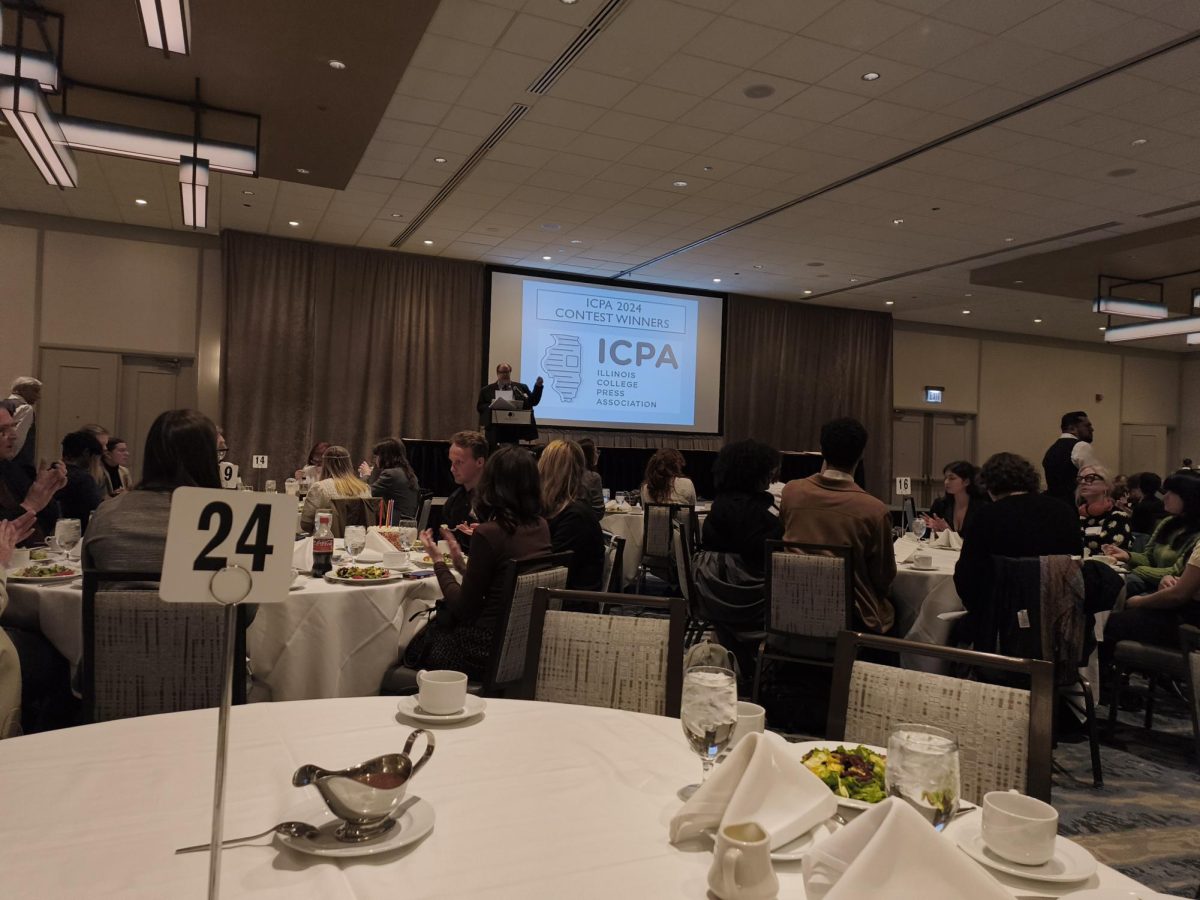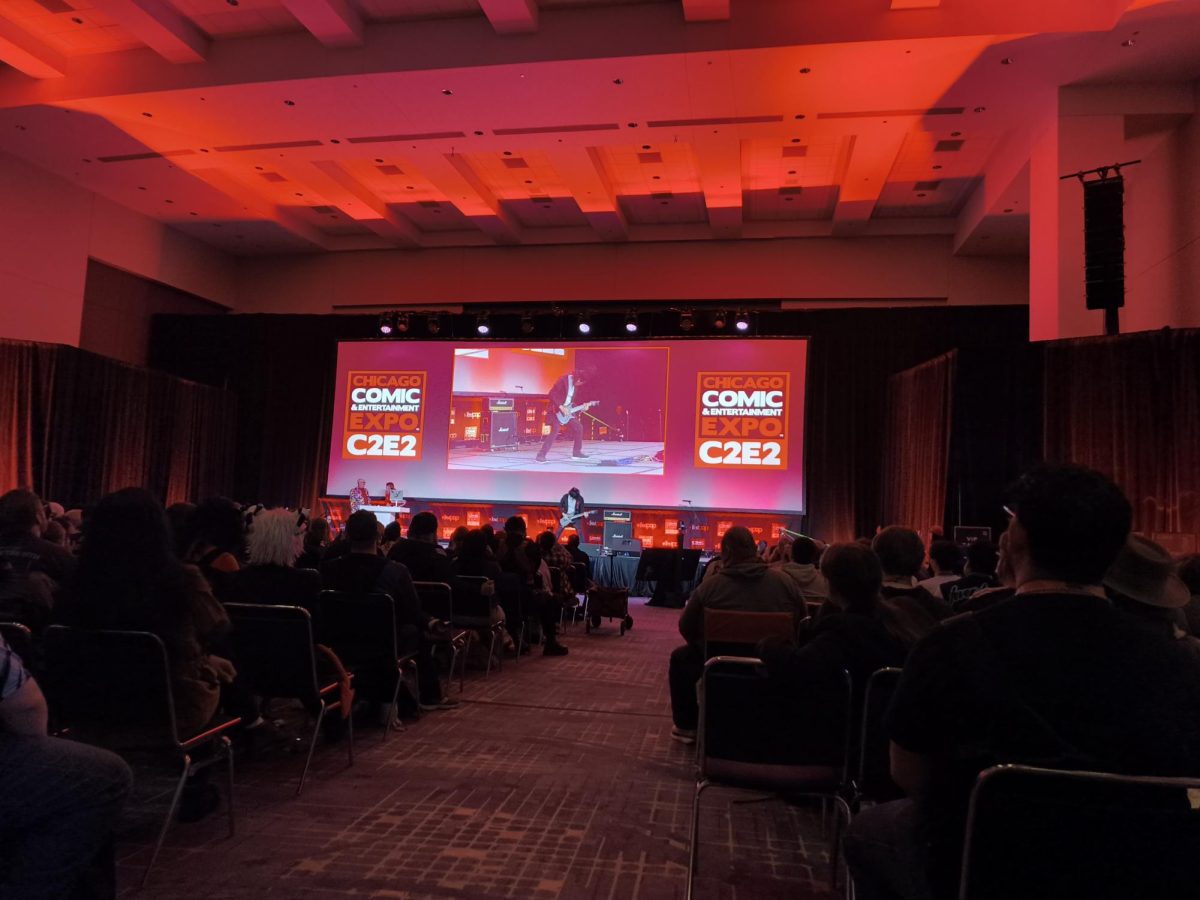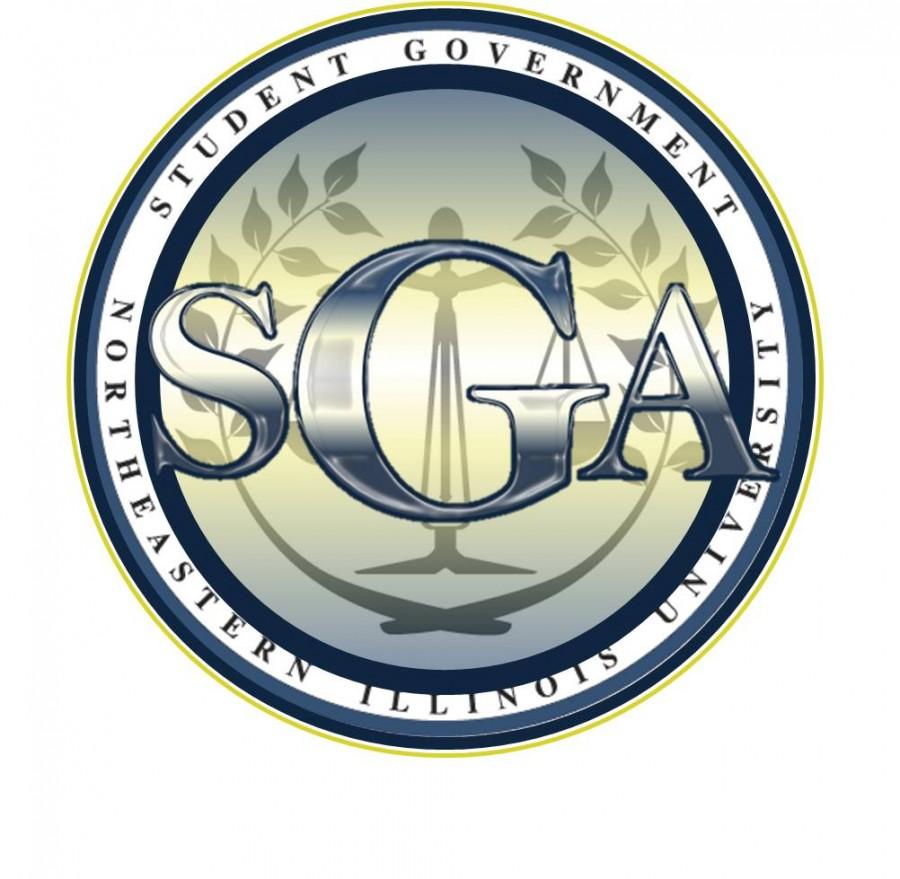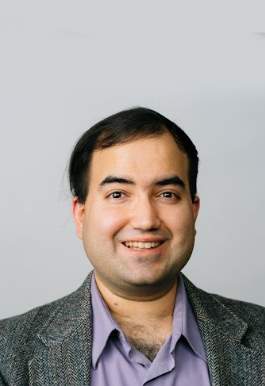
The American Association for Cancer Research (AACR) held its 2025 annual conference in McCormick Place from April 25 to 30, 2025. The Independent proudly received the opportunity to attend the science conference and interview exhibitors and poster presenters. The science conference featured exhibitors in the main hall with the intent to sell laboratory equipment for industry and research professionals to procure.
Sessions were held in the rooms along the outside corridor with research professionals presenting their discoveries. The third component to the science conference was poster presentations, similar to the annual John S. Albazi Student Research and Creative Activities Symposium at NEIU. The research poster area of AACR was designated for both research professionals, university faculty and students who researched various topics in cancer. Clinical research and epidemiology were among two of several topics within the poster section of the conference.
In an in-depth interview with Andrew Barnard, Western U.S. regional manager of Bio Molecular Systems, he gave information about the type of technology that is sold to private, public and university laboratories. “We simplify molecular biological assays including [quantitative Polymerase Chain Reaction] (qPCR), digital PCR, [Next-Generation Sequencing] (NGS), protein assays like kinase assays, [Matrix-Assisted Laser Desorption/Ionization Time of Flight] (MALDI-TOF),” Barnard said. “We automate the systems. What we sell is qPCR instruments as well as liquid handling robots.”
The automated system helps laboratory scientists by eliminating manual pipetting steps while doing it faster. Each assay must be completed using identical techniques without compromising data, and accuracy is imperative. “Complete assays can be tedious and tiresome,” Barnard said. If done incorrectly, “their data can be compromised and it could lead to poor results.”
The automated systems add consistency to the researcher’s work to help eliminate human error. Multiple competitor companies were selling similar robotic technology to do similar laboratory activities like pipetting and micropipetting.
When asked about the cancer research that excites Barnard, he responded, “I love the gene therapies, especially immunotherapies, and those seem like they’re gaining a lot of traction.” Furthermore, “I like where all the CRISPR stuff or CRISPR Prime stuff is going and gene editing and therapies in that realm,” he elaborated. CRISPR (Clustered Regularly Interspaced Short Palindromic Repeats) is a gene editing technology.
Barnard shared what he hopes to find in new NEIU graduates who are ready to embark on a career in cancer research. “I want people to be curious and have that fire inside them which often in academia can be crushed out of you [since the reward is grades],” he said. “Most people end up hiring because they get a foot in the door from somebody that knows them, not because you got a degree at whatever university.”
Barnard also reiterated the importance of networking and how that is the key to landing an auspicious job. “So go to networking events [and] invite people out to lunch [and] build good friendships and relationships. Then, those people can direct you when they know about opportunities.”
Regarding the researchers who work in the lab and present at sessions or posters, Barnard gave some tips to consider to NEIU students and professionals. “You need to start thinking about what are the tools that I would need to actually make science happen. In other words, to do those specific assays,” Barnard said. He referred to expediting the process and doing the research faster and more accurately while focusing on the results.
For example, particular biotechnology equipment “could make my project [go] from a 4-week long or a four-month long project into a 4-day project because it’s able to be automated,” Barnard said. “And I could do this many more samples, or I could get this much more data because I have these tools available to me.”
Barnard concluded his statements by giving some words of inspiration to NEIU students who are interested in a career in scientific research. “I think it’s always been the case that science is out to change the world. And if you’re going to be part of that world change, you want to be part of that science world,” he said. “So I think it’s a good career to be in the STEMS field.”
Erika Escabí-Wojna, a doctoral student at the University of Puerto Rico’s Medical Sciences Campus (UPR-RCM), presented a poster titled “Context-specific strategies for enhancing HPV vaccination: Insights from the US and territories in the post-COVID-19 era.” The epidemiological research focused on using a particular vaccine that can prevent certain cases of cervical cancer. “So, in my eyes, it’s a pretty preventable [form of] cancer, and we just want to get this vaccine out [to the public],” Escabí-Wojna said.

She and her colleagues interviewed subjects to figure out which HPV vaccination programs worked best, local factors for the acceptance of those programs and the rate at which individuals received vaccinations in the U.S. and its territories. “We wanted to carry out these interviews with key informants, just so we could understand what strategies they have in place in their states just because we understand that there are other factors,” Escabí-Wojna said. “What works in Puerto Rico, for example, maybe not necessarily work in New York, let’s say. So we thought: we saw it as a good opportunity to understand what works and why it works depending on the [particular] state.”
Escabí-Wojna gave advice to NEIU STEM students who are interested in getting involved in similar research. “Imposter syndrome is real, we all have to start somewhere. You’re not going to know everything from the beginning,” she said. “You have to ask questions, and as soon as [professors] start seeing that interest, they can guide you and point you in the right direction or present you with opportunities.”
Whether NEIU students are presenting at a national conference like AACR or a local symposium like Albazi on the NEIU campus, Escabí-Wojna wanted to share the importance of such experiences. “I can’t emphasize how important it is to actually try to put yourself out there and talk to people especially during poster presentations,” she said. “Ask people what they’re doing, why they’re doing it. Like you can, just as a student, you can go ahead and do it with any investigator or anybody presenting a poster and they’ll be really happy to talk and connect.”
When NEIU students are expected to present a poster, Escabí-Wojna shared some misconceptions and advice on how to do it. “When I first started presenting posters, I thought you had to literally go through every section in your poster,” she said. “But you can always just present a little summary, and people will ask questions and it’ll be a much more dynamic exchange. So yea that’s my advice.”

Undergraduate STEM students at NEIU should get practice creating research posters because it becomes a general expectation in the academic workforce like Escabí-Wojna experienced. Escabí-Wojna shared her first and most recent experiences presenting research posters. “I took a course on epigenetics and at the end of the course, the professor would ask us to do poster presentations,” she said. “So that was my first time doing it. So undergrad.” Currently, “at my job, if you’re working on something, [our supervisor] just highly encourages you to submit an abstract.”
Escabí-Wojna also elaborated how everybody comes from a different background even within similar topics, and the perspective that other individuals have can be eye-opening with certain realizations. “I’m an epidemiologist, but I did my bachelor’s in cellular [and] molecular biology. So I used to do a lot of lab work and a lot of pipetting,” Escabí-Wojna said. Thus, she has the perspective of clinical lab research and epidemiology. When it comes to the exhibitors at AACR, she found the community-based organizations, non-profit tables and public health tables most interesting. “If you’re interested in population public health topics; it was amazing talking with them,” Escabí-Wojna said.
Dr. Mark Willingham Jr., Community Health Educator at the University of Hawaii Cancer Center, gave research insights and advice to NEIU students during an interview with the Independent. Dr. Willingham presented a poster titled “Examining Social Networks Within Public Housing to Better Direct Cancer Screening Interventions for Pacific Islanders.”
His and his colleagues’ epidemiological research started because “we assume a lot of those [Pacific Islander] individuals have these large networks of these collectivist communities,” he said. “And that’s what I wanted to learn more about: to be the most effective work that we can do for providing intervention and providing resources” for cancer screenings.
Dr. Willingham Jr. encouraged NEIU students to attend as many science conferences as possible because “learning new things that’s happening with cancer, even just genomics sequencing [and] all that stuff, can kind of build you a better framework to even just talk to people about cancer,” he said. “[By] being here, you learn more to pass it on to more people and that’s just been very meaningful for me in my career path.”
Even if NEIU’s STEM students are not sure what subject area to focus their research on, attending conferences such as AACR can help define a worthy career path. “I think going to conferences and seeing what other people are doing, how they’re approaching problems, how they’re thinking about solutions, [and] working with populations,” Dr. Willingham Jr. said. “It can really kind of help you kind of craft and shape what you want to do and learn about what’s going on.” On a separate note, he encouraged NEIU students to “make connections, [do] networking, [and] passing around business cards is really important.”
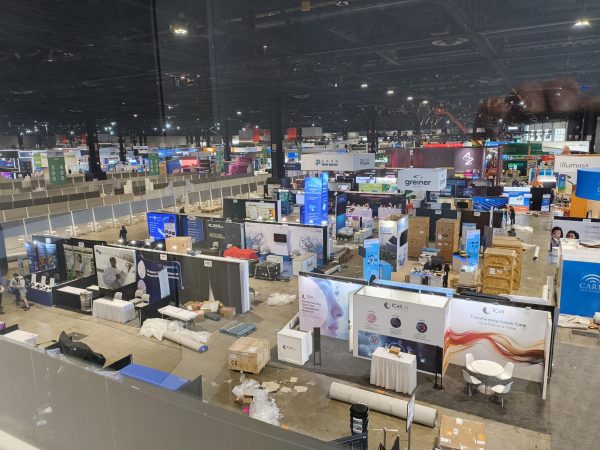
Going to science conferences such as AACR is not just for scientists with clinical experience, as Dr. Willingham Jr. says. “Even me, like I said, being here as like a social scientist, [and] sometimes in behavioral science, you feel kind of out of place, but you see how it fits and how important what everyone else is doing [is] because it kind of helps people,” Dr. Willingham Jr. said.
Beyond doing presentations as coursework during class time, real skill development begins while attending conferences, talking to diverse groups of people, mastering the topic of the poster, and practicing the art of conversation. Dr. Willingham Jr. highlighted that the methodology and results and doing elevator pitches of the poster are all research skills that he has obtained beyond classwork during conferences such as AACR.
His concluding remarks included sentiments to encourage NEIU students to go to conferences, get involved and escalate their careers because he has attended conferences nationwide and found it fulfilling. “It’s been foundational for me to [receive] opportunities not only in conferences, but [with] organizations like AACR. [I am] able to go to Washington D.C. and do advocacy work with AACR,” Dr. Willingham Jr. said. “They’ve provided me [with] research funding in terms of [going to] conferences like that.”
Next year’s edition of AACR will take place from April 17 to 22, 2026 in San Diego, CA. As of the publication date of this article, AACR plans to return to Chicago during April 18 to 23, 2031.





